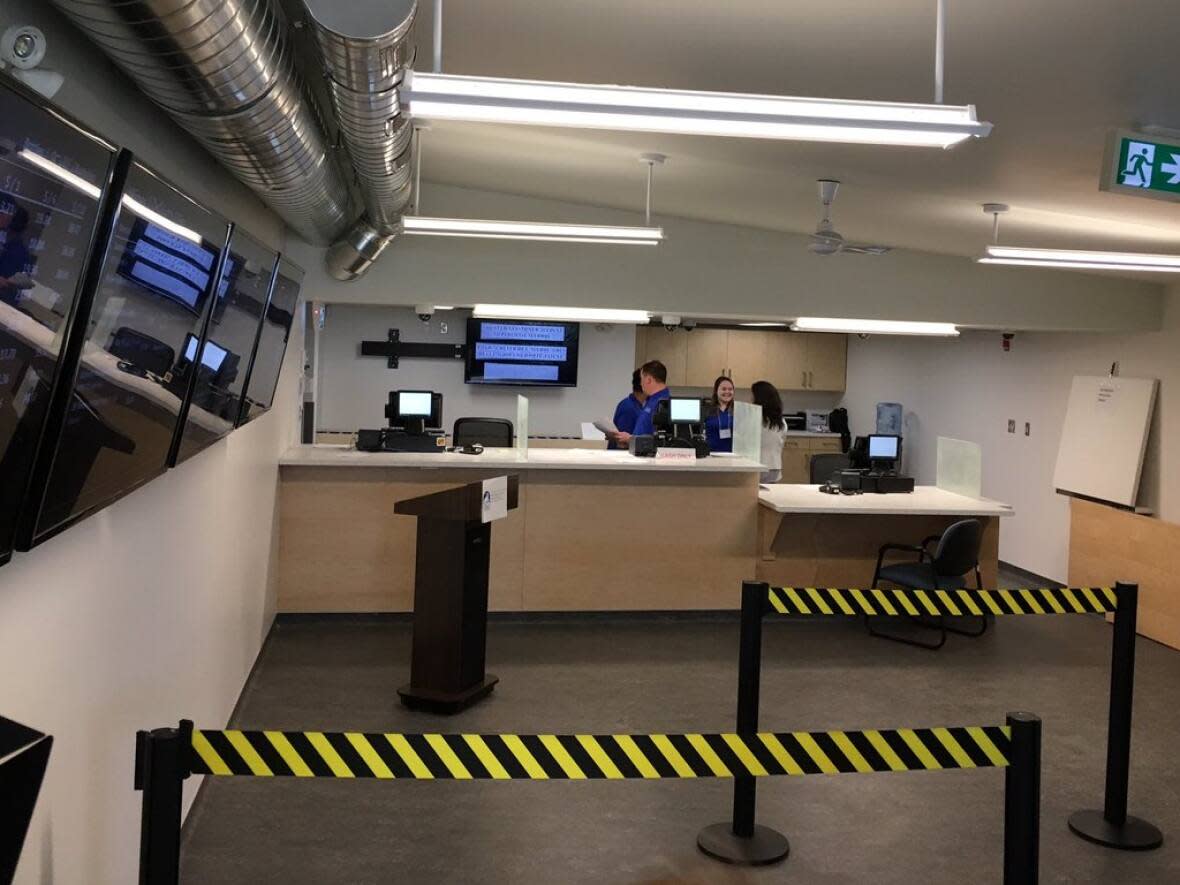Beer and wine outselling hard liquor, says Nunavut Liquor and Cannabis Commission

The Iqaluit beer and wine store sold $12.5 million worth of drinks in 2021.
Daniel Young, director of the Nunavut Liquor and Cannabis Commission, says people are choosing more products that have lower alcohol content over hard liquor.
"That was the whole intent of the [beer and wine] store and I think that's working," said Young.
The Nunavut Liquor and Cannabis Commission made $1.67 million off of spirits in 2017. That includes sales from bars, restaurants, special occasions, beer and wine stores, and community orders.
2021 totals
The Iqaluit beer and wine store became permanent in June 2020, with a goal to reduce hard alcohol consumption, encourage responsible drinking and combat bootlegging.
There are limits set on how much alcohol a single person can purchase at the beer and wine store. Up to 24 cans or bottles of beer or coolers, or up to four bottles of wine or one three litre box. Combinations can include two bottles of wine and 12 cans, or three bottles of wine and six cans.
But purchases of liquor through the Nunavut Liquor and Cannabis Commission do not have limits. Young says this is a regulation of the Liquor Act and a decision of the government at the time.

"When the [beer and wine] store was opened, there was a lot of concern that people would be drinking a lot more and that's why the government of the day decided to put in limits," said Young.
But the pricing structure of the Nunavut Liquor and Cannabis Commission works so that items with the lowest alcohol content are less expensive than items with higher alcohol content.
"Higher percentage beer attracts a higher markup than lower percentage beer and the same for wine and spirits," said Young.
Iqaluit beer and wine store
In 2021 the Iqaluit beer and wine store sold more than 2.8 million cans and bottles of beer.
"That translates into just over a million litres of beer at that one location," said Young.
2021 Calendar year
Young says beer is by far the most popular product at the beer and wine store.
The Iqaluit store sold 130,400 bottles of wine and 305,700 "ready to drink" items, such as coolers and ciders in the same year.
Young says that's consistent with sales in 2020.
Rankin Inlet store opens
In December the Nunavut Liquor and Cannabis Commission opened its second beer and wine store in Rankin Inlet, Nunavut.
For the month of December, the new store took in $309,000 in sales. The Iqaluit beer and wine store for the same month made $980,200.
December 2021 totals
Rankin Inlet has less than half the population of Iqaluit at approximately 3,000 people. Iqaluit's population is about 8,000.
The first month the store in Rankin Inlet was open, it sold 61,400 cans and bottles of beer, 2,800 bottles of wine, and 12,100 units of ready to drink items.
"It's a little bit tricky to extrapolate off of just one month, especially the month of December, which is always kind of a little different with holidays and work closures and things like that," said Young.
He says it will take more time to know if the numbers will trickle off.
December 2021
The Iqaluit beer and wine store sold 210,000 cans and bottles of beer, 10,200 bottles of wine and 26,400 ready to drink items for the month of December.
Cambridge Bay could see next beer and wine store
Young says the next community where the Nunavut Liquor and Cannabis Commission is looking to open a beer and wine store is Cambridge Bay.
The community expressed interest in 2017. Young says any community that expresses interest to the finance minister could potentially see a store open.
"However, we're learning with the Rankin Inlet store that our current model is not overly viable as a community gets smaller [in population]," said Young.
Young says the commission doesn't have the capacity to open several stores at a once but will explore options if a community signals an interest.
"We're looking at everything from opening a full store ourselves, to partnering with a local company to run an agency type store."


